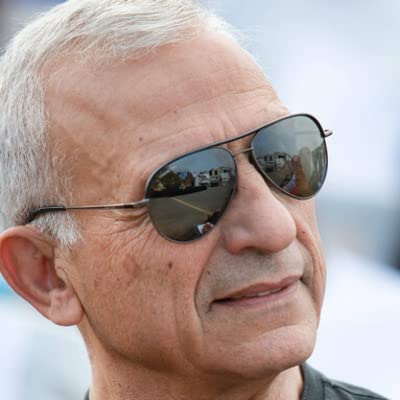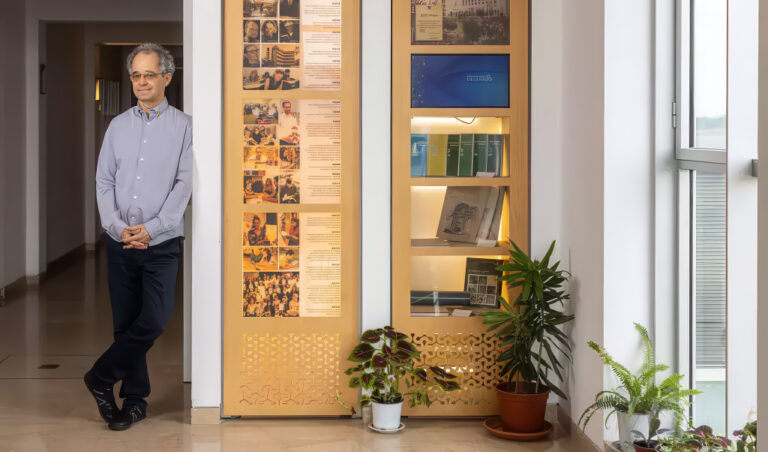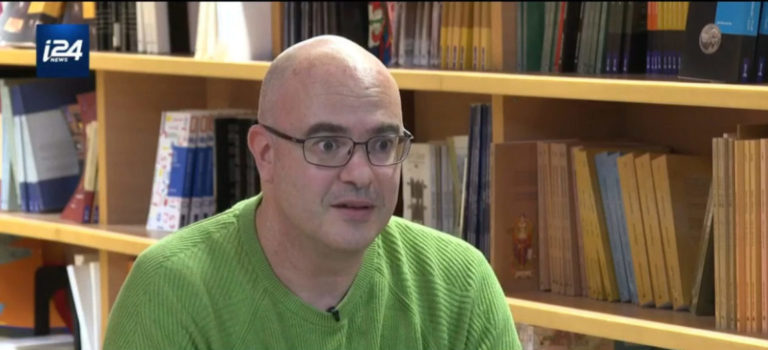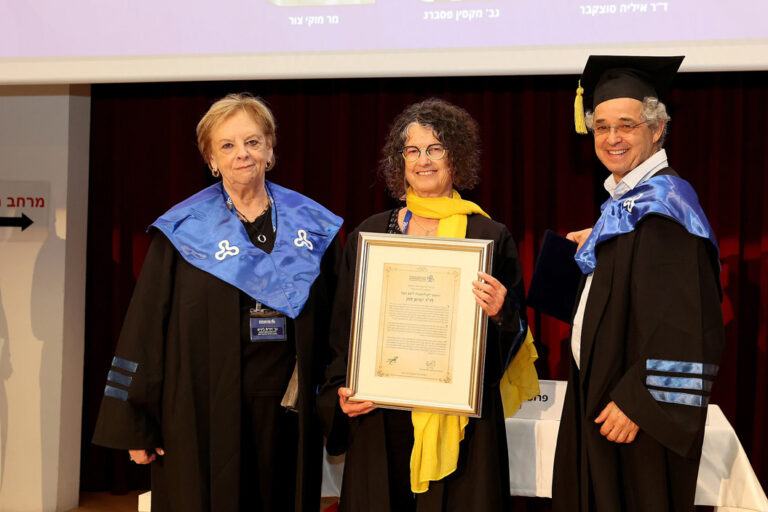Astrophysics Research Center of the Open University (ARCO)
On Monday, December 20, 2021, the Open University will launch the Astrophysics Research Center (ARCO) operating under the auspices of the Department of Natural and Life Sciences. The main objective of the Research Center is to serve as a scientific, institutional and practical umbrella for the study of theoretical, observational and empirical issues and topics in the field of astrophysics, cosmology, relative gravity and the interrelationships between them.
The Research Center is headed by Prof. Saleem Zaroubi, who is joined by other senior faculty members among the physicists in the Department: Dr. Paz Binyamini, Prof. Jonathan Granot, Dr. Allona Vazan and Prof. Yosef Verbin. Their main areas of research are cosmology, high-energy astrophysics, relativistic gravitational theories, and planetary physics.
The research center will initially employ about ten postdoctoral scholars, as well as several faculty members from the Department of Physics. Its members will also include around ten external researchers from leading universities in Israel and overseas, who have collaborated extensively in research with the Open University. In addition to the individual excellence of the researchers at the center, its strength lies in its areas of research, which are closely related to one another and serve as fertile ground for collaborations and the establishment of valuable research activities.

Areas of Research of the Senior Fellows of the Center:
The research activities of the fellows of the Center cover many fields in astrophysics, gravity physics and cosmology, among them theoretical ones, in some of which astronomical observations based on different types of radiation, are fully integrated, reaching us from space and are recorded by telescopes and satellites. The objective of these studies is to understand the universe in which we live and the objects that comprise it – how they were created, what they are made of, and what will happen to them (and to the entire universe) in the future.
Dr. Paz Binyamini specializes in the field of astrophysics and high-energies. The astrophysics branch deals with nature’s most extreme systems, in which particles can be accelerated to speeds close to the speed of light, and magnetic fields can be one hundred trillion times more powerful than those on Earth. Dr. Binyamini’s research focuses specifically on gamma-ray outbursts, rapid radio flashes, magnetars, in neutron star pairs and in the creation mechanisms of heavy elements in the universe.
Prof. Jonathan Granot specializes in the astrophysics of high energies and studies some of the most extreme systems in nature – huge systems of strong gravity and massive material and energy, in which both individual particles and macroscopic amounts of material can be accelerated to speeds close to the speed of light and immense magnetic fields. This sphere includes systems which contain black holes or neutron stars, which are also important sources of gravity waves, cosmic radiation and energetic neutrino particles. In particular, Prof. Granot studies gamma-radiation bursts, magnetars (neutron stars with the strongest magnetic fields in nature), (magneto-) relativistic hydrodynamics, nebulae around pulsars, dynamics and structure of relativistic jets, high-energy neutrinos and astrophysical tests of Einstein’s theory of special relativity.
Dr. Allona Vazan specializes in the astrophysics of planets. She calculates models for the formation, development, and internal structures of planets in the solar system and around other stars in the galaxy. Her current studies focus on the effect of heat and matter transfer processes within the planet on the external properties measured in observations. Dr. Vazan is a partner in research groups worldwide, and a member of the scientific team of the ARIEL International Space Mission for the study of planet atmospheres.
Prof. Yosef Verbin specializes in Einstein’s general relativity theory and its generalizations, such as gravity theories f (R) or other versions based on other curvature invariants, scalar-tensor theories and massive gravity. Generalized gravitational theories of this nature are good candidates for solving the mystery of cosmic acceleration (dark energy) as well as for solving the mystery of dark matter. In addition, they have implications on shorter distance scales, such as changes in the gravitational fields of compact objects like black holes and neutron stars, or more exotic objects like boson stars and magnetic monopoles.
Prof. Saleem Zaroubi specializes in the field of cosmology, the study of the universe. His research focuses on the questions of the formation and development of the structure of the universe (from galaxies to the largest distance scales), its gamut of features and the role played by the components of the universe (radiation, ordinary matter, dark matter and dark energy). Prof. Zaroubi specifically researches a variety of topics relating to the formation of large structures in the universe and their development, as can be learned about in various ways, such as the distribution of velocities of galaxies relative to the average velocity of matter adjacent to them, galaxy redshift surveys, the isotropic lack of cosmic background radiation in microwaves, hydrogen absorption lines in the spectrum of distant quasars or the 21 cm hyperfine spin-flip transition of neutral atomic hydrogen. His current research focuses on the first billion years of the universe, which is divided into three periods known as: the Dark Ages, Cosmic Dawn and Reconstruction. During the first billion years, the first generations of stars and galaxies were created, and the universe moved from its primordial state to the universe as we know it today.






